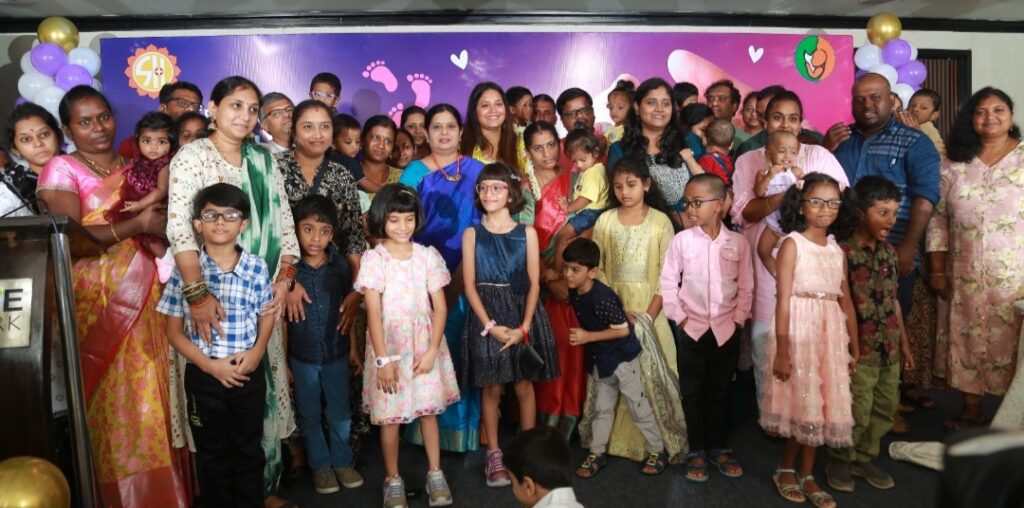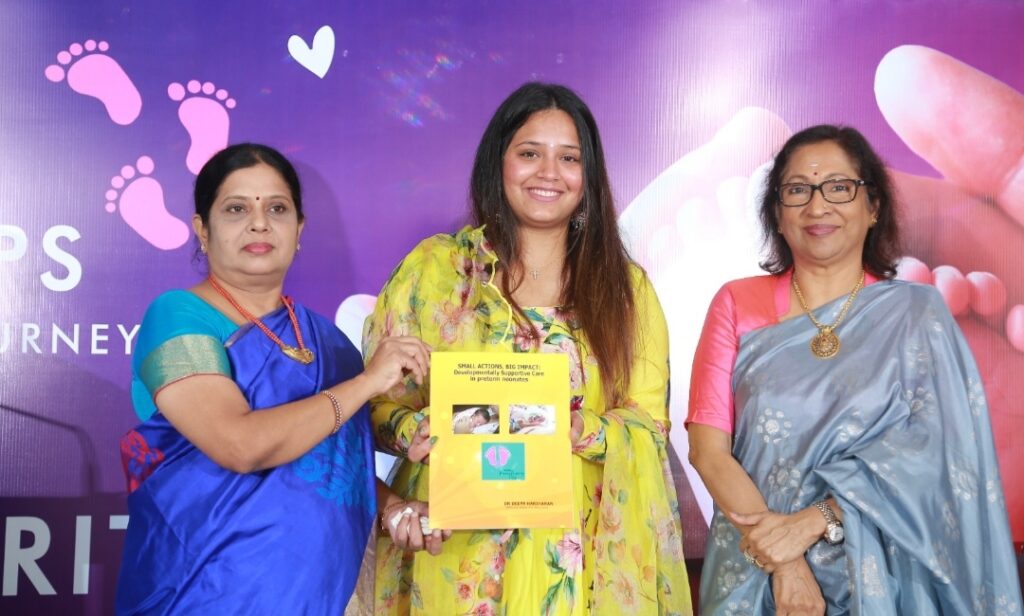
Neonatologist releases key study highlighting need for Oral Motor Intervention
techniques in premature birth cases
*About 35,00,000 babies are born premature annually in India
**Only 10% of premature infants get early OMI, due to lack of awareness and
paucity of trained personnel
***Study calls for increased awareness on quality neonatal care to improve clinical outcomes
Chennai, 18 November 2023: In an effort to raise awareness on premature births and shine light on neonatal care practices to improve clinical outcomes, Dr Deepa Hariharan, NICU Head at Sooriya Hospitals, released a key set of findings at an event today. The event, organized to mark World Prematurity Day, also featured a sharing of experiences by champions of prematurity and the release of a book Small Actions, Big Impact. Squash champion Deepika Pallikal Karthik also shared her experience.
The research findings are significant in light of the evolving discourse on neonatal care practices and concerns such as oral motor incoordination (or the inability to acquire oral feeding skills observed among premature infants). The research report titled Oral Motor Intervention In NICU: Brain And Speech Exercises in NICU Improve Outcomes was presented by Dr Deepa at the annual meeting of the prestigious European Society for Paediatric Gastroenterology at Vienna earlier this year. The findings shed light on the benefits of Oral Motor Intervention (OMI) techniques such as stroking, massaging the mouth and lips for speech and brain development and other interventions by certified speech therapists. Early OMI was found to reduce dependence on nasogastric tubes, help newborns feed better and reduce hospital stays among premature infants. The study, the first to use OMI combined with breastmilk, recommends OMI as a simple and cost-effective measure to preserve new born health.
Prematurity is the leading cause of neonatal and infant mortality in India. About 35,00,000 babies are born premature annually in India. Maternal diabetes, hypertension, stress, infection and malnutrition in addition to inadequate antenatal care contribute to prematurity. Premature babies need varying levels of intensive care including respiratory therapy, antibiotics, phototherapy, parental nutrition and cardiac support. It is expected that prematurity could become a Non Communicable Disease in the coming years. However, simple interventions during pregnancy such as the timely use of steroids, therapy in the first golden hour of life and prompt advanced neonatal intensive care can improve outcomes.
Dr Deepa Hariharan, Senior Consultant Neonatologist, Sooriya Hospital, said, “I am pleased to be sharing the findings that are of key relevance to the neonatal critical care space. Infants are an extremely vulnerable category —my team and I embarked on this vigorous research exercise as we felt there was a dire need to educate stakeholders on OMI techniques and improve clinical outcomes. We as healthcare professionals are also alarmed by the statistics – only 10 % of infants get early OMI due to lack of awareness and paucity of trained personnel. One in 5 babies is born premature in India. In such a scenario, awareness about cutting-edge care practices during the golden first hour of birth is the key. ”
A survey by the Indian Foundation for Premature Babies showed that of the 2150 pregnant women surveyed, only 22% were aware of the risk of prematurity. Of the 1020 women who delivered premature babies, only 17% were prepared for the logistics of NICU stay (such as the choice of NICU, separation of mother and baby, transport, finances and prolonged leave from work). In 1/3rd of the cases, the “golden hour” was spent overcoming the shock of the baby being born in a premature state.
Delayed acquisition of oral feeding skills in premature infants is a major cause of prolonged NICU stay, costs and morbidity including hospital-acquired infections and malnutrition. These factors impact long-term outcomes in premature infants. Addressing this issue is the need of the hour.


